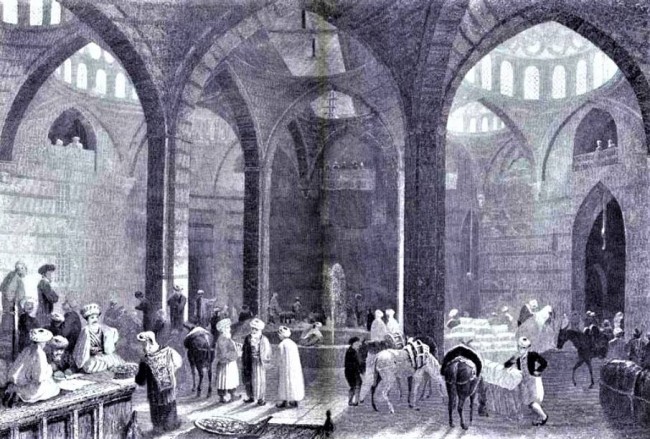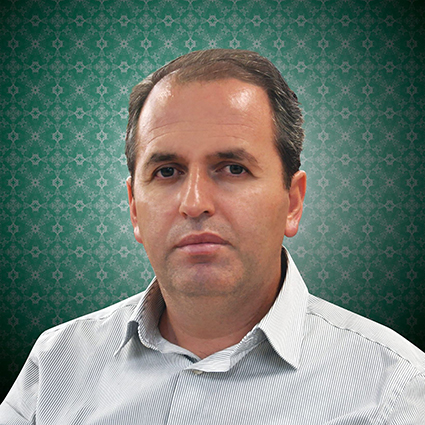Foundations for Porters: In the charter of Nakibül Eşraf Esad Efendi Foundation, it is stipulated that resting stones be made in various places for tired porters to rest by putting their loads on them; they were placed in appropriate places. Financial aid was given to the elderly who were too sick to work and those who worked as rowers in boats.
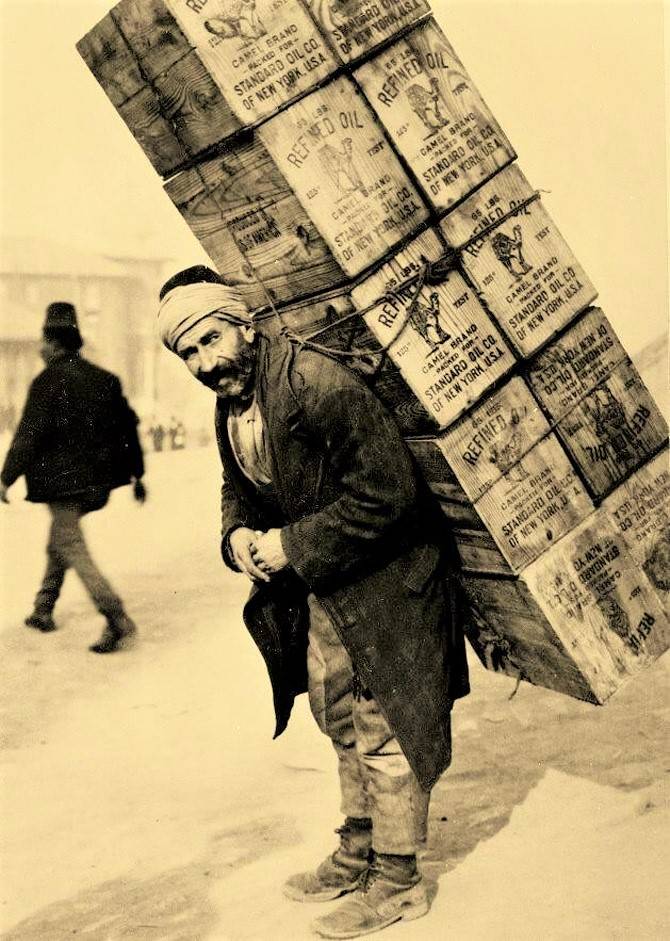
There were also foundations that protected porters in the Ottoman State.
Work Foundations for the Elderly: In a foundation established in Sivas, needy old ladies were given cleaned, washed and combed wool to spin in return for high wages. Widows of martyrs who had no relatives lived In Erâmilhâne (Widows House), which was opened in 1916, belonging to the Hacı Saffet Bey Foundation in Bursa; the widows were allowed to sell their handicrafts in the shops in the hall of the building where they stayed.
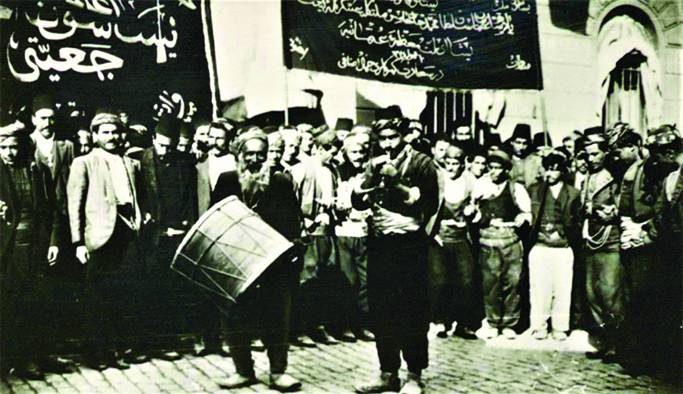
An activity carried out by the Association of Porters and its members in the 1910s, which was established in Istanbul to protect the rights of porters
Free Care Foundation for Patients: The following statement is written in the charter of the foundation established by Germiyanoğlu Yakup Çelebi in Kütahya in 1889 about providing free care for all patients without any discrimination: “Doctors will be taken to the homes of sick people; they will be treated and doctor's fee will be paid; in addition, medication fee will be paid; if any of those patients die, funeral expenses such as shroud and soap will be met in the best way.”
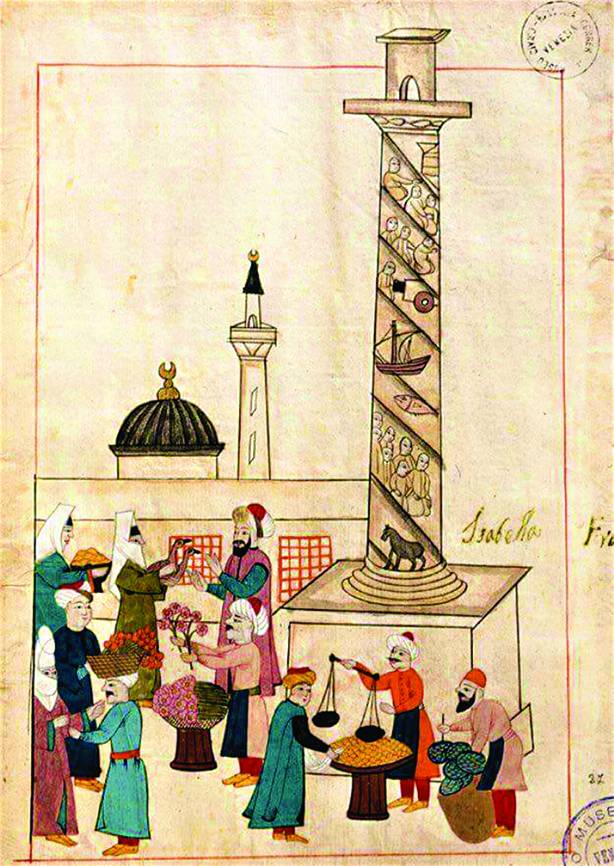
A market place in the 1500s
Hospital Foundation for Villages: Ahmed Çelebi (1436-1523), the chief physician of the Süleymaniye Medical Madrasa, spent an important part of his fortune he inherited from his father to build small hospitals in 40 villages with the foundation he established; he also used those hospitals as medical schools to train physicians.
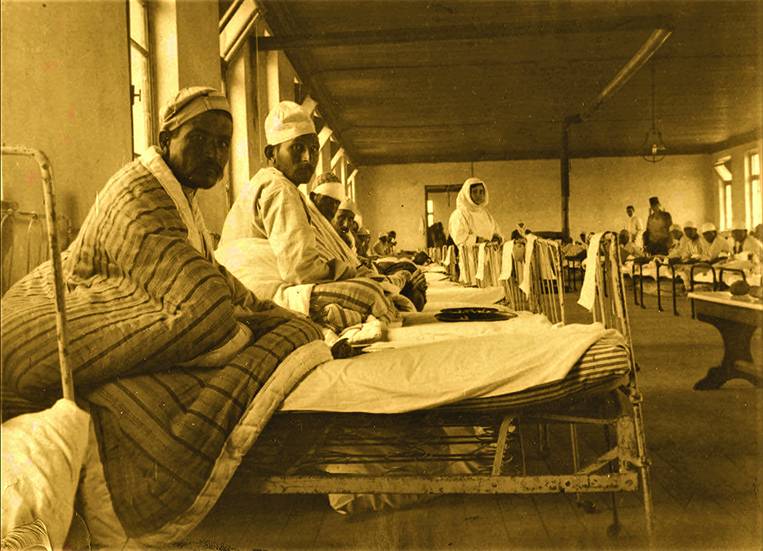
Patients being treated in an Ottoman hospital
Foundation for Saving Prisoners of War: Thanks to the foundation established by Saliha Hatun in Salihiye Neighborhood of Damascus in 1308, many Muslim men, women and children who were held captive in the hands of the enemy in various countries were saved and their expenses to return to their homeland were met. When there was no one to be saved, the poor and the needy were helped with the money that was saved for that purpose.
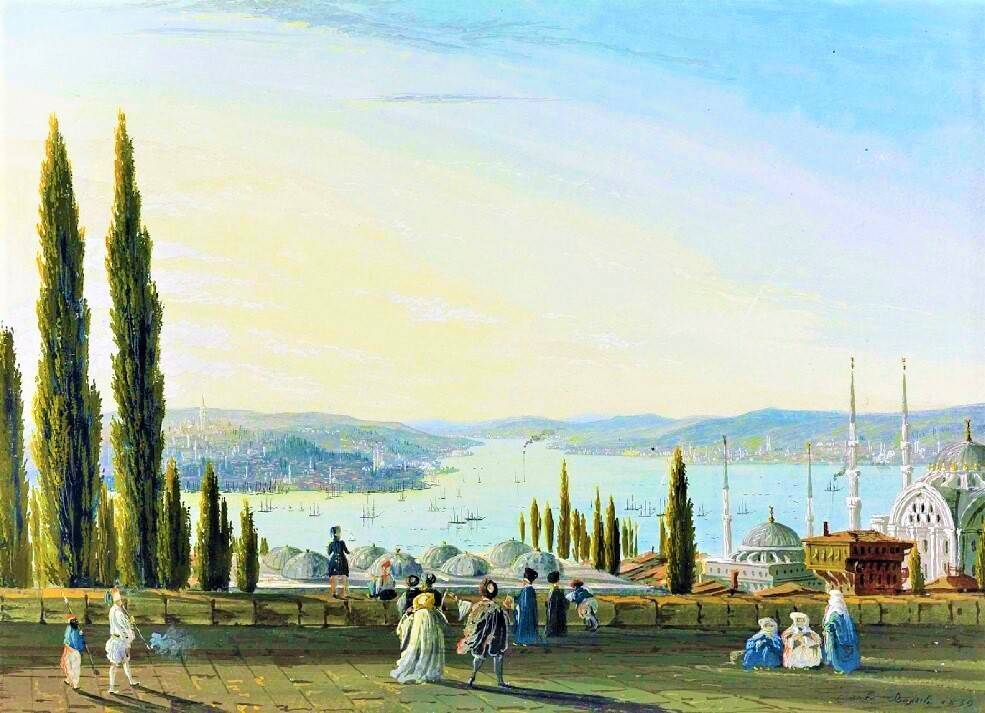
A fascinating view of Istanbul and the Bosporus in the 1800s
Foundation for Supplying Water to Prisoners: With the income of the foundation belonging to Ali Ağa established on August 31, 1600 in Istanbul, fresh drinking water was bought for the prisoners in Galata Prison every day.
Foundation to Help Shipwrecked People: The foundation, which was established by Süleyman Subaşı bin Abdulmennan in Istanbul in 1576, aimed to help those who were shipwrecked: “…helping those who were shipwrecked in Istanbul, the poor people whose ships sunk and those who suffered a disaster...."
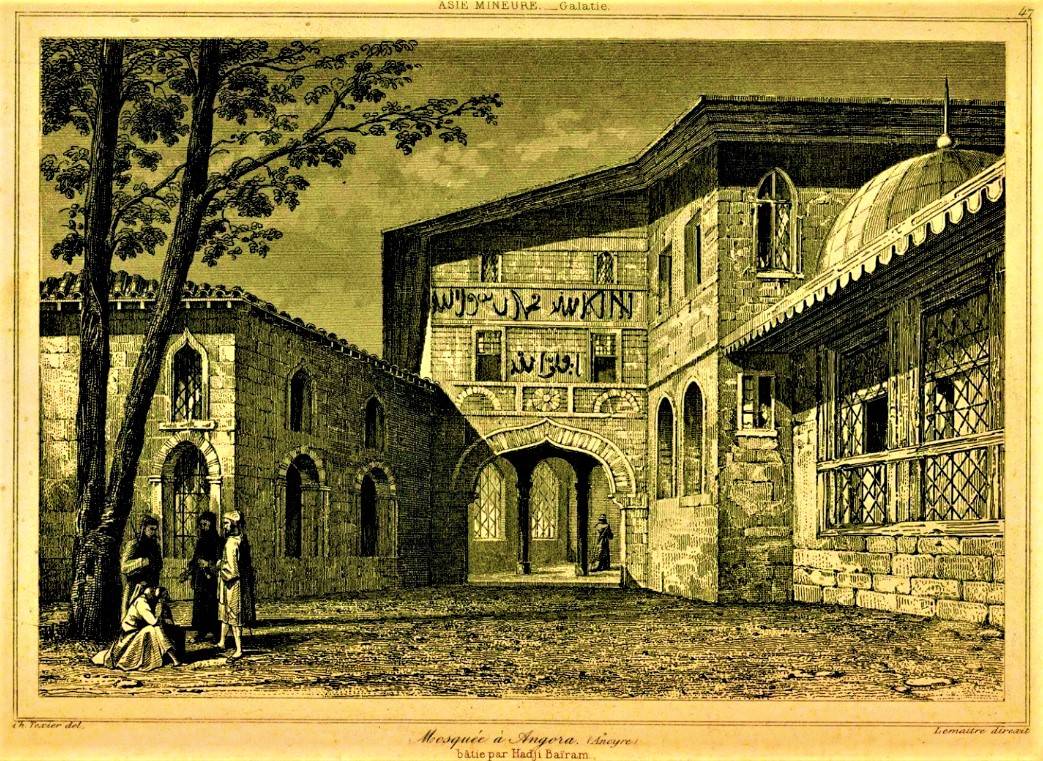
An engraving in the 1800s of the Hacı Bayram Mosque, the most important place of worship in the Ottoman city of Engürü (Ankara)
Foundation Enabling People to Breathe Fresh, Clean Air in the Bosporus: Ramazan oğlu Hacı Nureddin Efendi, known by the nickname Peksimetçibaşı, transformed his mansion in Bebek, Istanbul, and the fountain and harbor he built next to it into a foundation in 1730 so that people who came sightseeing could breathe fresh air and enjoy the scenery of the Bosporus. He stipulated it in the charter of the foundation as follows: "Both the mansion and harbor that I built next to the fountain are reserved for the ummah of Muhammad to breathe fresh air..."
Foundation to Supply Warm Water to Those Who Make Wudu (Ablutions) in Winter: Established in 1721 by Müderris Kocabeyzade Abdülhadi Efendi in Ankara, the foundation had a cauldron placed in the wudu room next to a mosque in Altındağ, and supplied warm water to the believers who made wudu in Engürü (Ankara), famous for its cold winter days. Abdülhadi Efendi states it as follows in the charter of the foundation: "... Water will be heated in the cauldron that I placed in the ablution room next to the mosque with sufficient amount of firewood on winter days; I allow all Muslims to make wudu with that water."
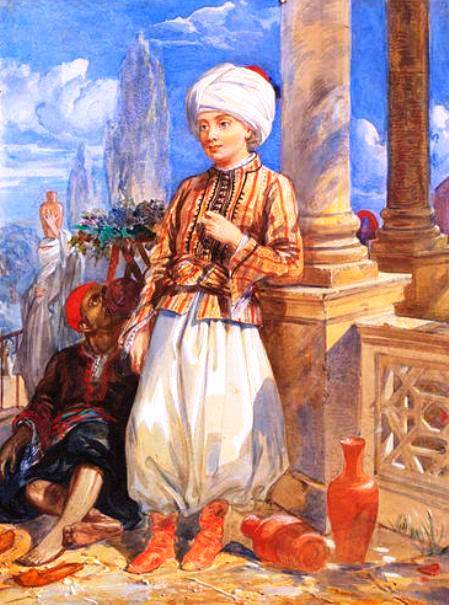
A young Ottoman in the 1840s
Foundation to Repair the Clocks in Mosques: Established by Ayşe Hanım, daughter of İsmail Efendi, in Istanbul in 1810, the foundation was involved with the maintenance of clocks in mosques and in muvakkithanes (time keeping and calculating rooms/buildings). The charter of the foundation, which had a budget of 100 Mecidi gold coins and 1000 piasters, stipulated that a qualified person be found and a salary be allocated to that person.
Compensation Foundations: They are the foundations established to prevent people working in houses or children from being scolded or beaten because of the utensils and other things they broke. The people who applied to those foundations received money for the things they broke or the equivalent things.
Foundation for the Care of Storks with Broken Wings: In Ödemiş, İzmir, Mürselli İbrahim Ağa allocated a portion of the income of the foundation he established for the care and feeding of the storks that lived around Yenicami or that could not migrate due to illness for the purchase of liver and tripe throughout the year.
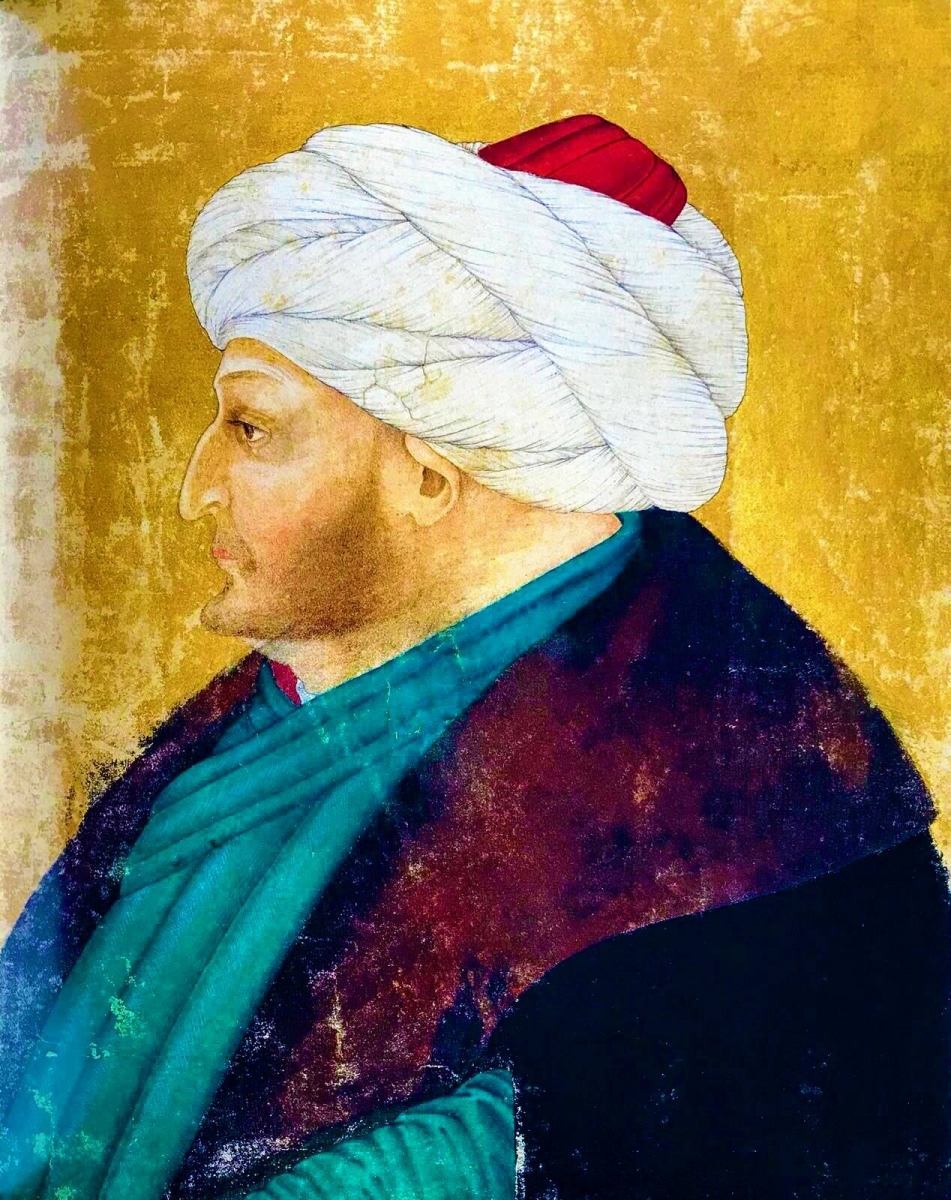
A portrait of Sultan Fatih (Mehmed II) in the 1480s, attributed to Nakkaş Sinan Bey (Topkapı Palace Museum, Treasury 2153)
Foundation for Erasing Graffiti: In 1470, Sultan Mehmed the Conqueror had the Vizier Ahmed Pasha establish a foundation with the purpose of cleaning the writings, pictures and figures that polluted the walls of all mosques, madrasahs, barracks, fountains, inns, public baths, gardens and soup kitchens in Istanbul; he ordered Ahmed Pasha to find a wise man who would perform that service as follows: “A wise and prudent person will be appointed as the graffiti cleaner of the foundation; he will take care of the walls of mosques, madrasas, schools, soup kitchens, etc. and will erase the pictures, writings and dirt of the rude people who pollute the walls.”
Road Security Foundations: The foundation established by the Grand Vizier Hasan Pasha in Karamurt, Hatay in 1704, served as a caravanserai and aimed at the safe travel of people between Antakya, Belen and Payas. In the caravanserai, all needs of the travelers and their animals were met free of charge for three days; road safety was ensured by the appointment of 30 guards whose salaries were to be paid from the income of the foundation.
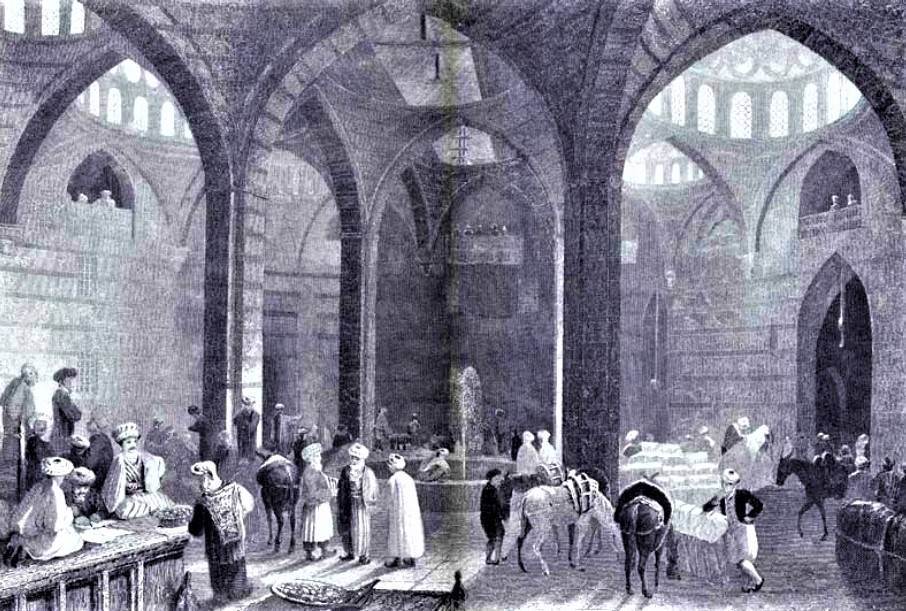
An engraving depicting a caravanserai in the Ottoman State
Ink Foundation: El-Hac Mustafa Ağa established the Ink Foundation in Soğan Ağa neighborhood of Beyazıt, Istanbul; he stipulated that a person stand at the front door of the Beyazıt Mosque every Thursday and put enough ink in the inkwells of any people who wanted.
References:
1. Vakıflar Genel Müdürlüğü Arşivi’nde mahfuz 304, 611, 617 nolu Vakfiye Defteri.
2. Nazif Öztürk, Menşei ve Tarihi Gelişimi Açısından Vakıflar, Ankara, 1983.
3. Nazif Öztürk, Türk Yenileşme Tarihi Çerçevesinde Vakıf Müessesesi, Ankara, 1995.
4. Osman Keskioğlu, “Bazı Yönleri ile Vakıflar”, Vakıflar Dergisi (1973), c.10.
5. Tarihte İlginç Vakıflar, Vakıflar Genel Müdürlüğü Yayınları, İstanbul, 2012.
6. Musa Şahin, N. Ebrar Kaya, “Valide Sultanların Kurduğu Vakıfların Kadına Yönelik Sosyal Hizmetleri”, Yalova Sosyal Bilimler dergisi, Mayıs-Ekim 2016, sayı: 12.
7. İbrahim Ateş,”Bursa’da İnegöllüoğlu Saffet Beyin Yaptırdığı Dullarevi”, XII. Vakıf Haftası Kitabı, Ankara, 1995.
8. İbrahim Ateş, “Hasan Paşanın Hatay Karamurt’daki Vakıf ve Vakfiyesi”, Vakıflar dergisi, Ankara, 1982, sayı: 16
9. Tıp Tarihi Enstitüsü Arşivi, Mürekkep Dosyası,
10. Uğur Derman, “Eski Mürekkepçiliğimiz”, İslam Düşüncesi mecmuası, Haziran 1967, sayı: 2.

